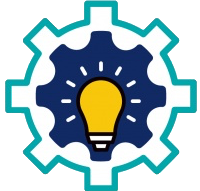Modern Water Desalination Technologies
Details :
Water desalination technologies play a crucial role in
socio-economic development in a number of countries in the world. Desalinated
water is an essential and often the sole, source of fresh water in several of
these countries, and rising living standards and high population growth are
likely to render desalination a viable option for many areas of the world.
Fresh water is rapidly becoming a scarce resource in many countries around the
world. Modern desalination technologies, applied to seawater and brackish
water, offer effective alternatives in a variety of circumstances. For some
countries in the world particularly in Gulf States they are on the most aird
part of the globe and characterized by some of the world's highest population
growth rates, would benefit greatly from the adaptation, further development
and wider dissemination of desalination technologies.
Large-scale thermal desalination technologies have been in use
since the 1950s. The larger desalination plants have provided fresh water
supplies for drinking municipal use and agricultural development, particularly
in the Gulf States. In the past, high capital costs and heavy energy
consumption generally translated into excessive desalinated water costs.
However, advances in technology have helped to drastically reduce capital and
running costs as well as energy requirements, rendering desalination more
viable an option than ever before.
This course is essentially aimed at outlining trends in modern
desalination technologies and highlighting the options offered by recent
technological advances. The seminar covers available technologies, proposed
design improvements and market potential in the near future. Through case
studies, some of their more salient features are examined. Energy demands for
both current processes and the newer innovations will be discussed. The seminar
will cover both major processes in water desalination, the thermal and the
membrane separation.
Upon successful completion of
this course, the delegates will be able to:
ü
Apply and gain a basic
understanding of Thermal Desalination Processes
ü
Perform the role of Membrane
Separation Processes
ü
Use the basic concepts of
Desalination Economics
ü
Understand the Strategic Issues
In Desalination Technology Capacity Building
ü
Analyze and Understand the
Renewable Energy Desalination Technologies
ü
Use the Recent Trends and
Expected Future Developments in Water
ü
Use the basic concepts of
Desalination Technologies
ü
Wastewater Collection Pumping
Systems
This course is aimed for engineers, scientists and technologists
involved in the planning, management and operation of water desalination
systems and also for manufacturers, consultants, designers, researchers and
water personnel. This course is also suitable for water laboratory staff
including lab managers, chemists, scientists, analysts, technologists and other
lab technical staff.
Day 1:
(A) Source
of feed water
(B)Water
desalination main processes: -
ü Reverse
Osmosis
ü Distillation
ü Ion
exchange
ü Electro
dialysis
(C)Filtration
process: -
ü Micro
filtration
ü Ultra
filtration
ü Nano
filtration
ü Reverse
Osmosis
Day 2:
(D)Theory of reverse Osmosis
(E)
Reverse
Osmosis terminology
(F)
Definitions-RO
process
(G) Factors
and parameters related to RO process
Day 3:
(H)
Membranes:
-
ü Membranes
configurations and types
ü Spiral
wound membrane
-
Overview
-
Construction
-
Separation
-
Fluid dynamics
(I)Reverse Osmosis
plant: -
ü Feed
water intake system
ü Pre-treatment
system
ü Desalination
system
ü Post
treatment system
ü Operating
data
ü Operating
procedures
Day 4:
(J) Troubleshooting
(K)Fouling:
-
ü Types of
fouling
ü How to
prevent fouling
(L)
Scaling:
-
ü Nature
of scaling
ü Prevention
of scale formation
Day 5:
Chemical cleaning: -
ü Timing
for cleaning
ü Cleaning
system
ü Types of
cleaning
ü Cleaning
procedure
ü Cleaning
chemicals
(M)
Main
equipments & devises are using in water desalination R.O. Plants: -
ü Pumps,
high pressure pump and centrifugal pump
ü Air
compressors and pneumatic valves
ü Meters
/flow & quantity
ü PH,
cond. & ORP devices
- All lectures are in colorful presentation
- All lectures are interspersed with interactive discussion
- All lectures include group discussion, case history and exercises
- Actual major incidents as well as industry experience are reviewed
- Participants receive a multicolor course manual
- Pictures of real incidents and case history are shown
- Videos on the subject are shown
08:20 - 10:00 First Session
10:00 -10:20 Coffee / Tea / Snacks
10:20 - 12:20 Second Session
12:20 - 13:30 Lunch Break & Prayer Break
13:30 - 15:00 Last Session


